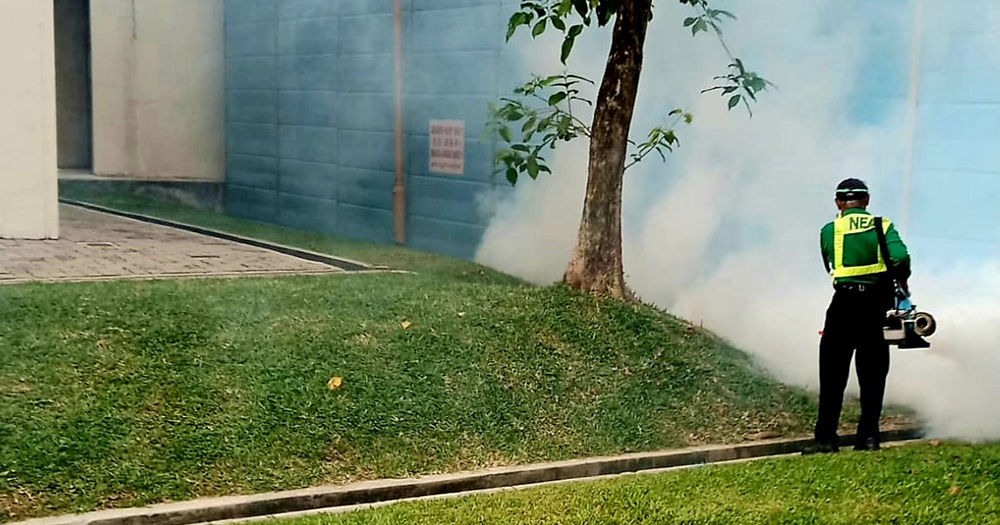More than 6,200 cases of dengue have been reported in Singapore as of Sep. 5.
Surge in cases driven by DenV-1
According to the National Environment Agency (NEA) in a press release, there is a risk of surge in dengue cases as the dengue virus serotype 1 (DenV-1) has been gaining dominance.
This trend is emerging against a backdrop of high weekly dengue cases, several large and persistent dengue clusters, and high Aedes mosquito populations in many places.
The NEA added that over the past two months, there has been an increase in DenV-1 cases, replacing the previously dominant dengue virus serotype 3 (DenV-3).
In July, the monthly proportion of DenV-1 cases was approximately 55 per cent, which was almost triple the proportion of DenV-3 cases at 17 per cent.
NEA further noted that the rise in proportion of a previously less prevalent dengue virus serotype is "of concern", as this has historically been associated with a surge in dengue cases months later.
Currently, there are 48 active dengue clusters
NEA added currently, there are 48 active dengue clusters, 13 of which have been classified as large as more than 10 cases have been reported within these areas.
Some of the large clusters highlighted included a cluster at Science Park drive with 29 cases, and another with 24 cases at Lentor Loop.
NEA added that these clusters have a fast rate of dengue transmission.
Persistent dengue transmission has been noted at other large dengue clusters at Toa Payoh, such as at the cluster of 319 cases at Lorong 1, Lorong 2 Toa Payoh, and the cluster of 177 cases at Lorong 1A Toa Payoh.
Other large dengue clusters include the cluster of 66 cases at Angklong Lane, and the cluster of 44 cases at Eng Kong Road.
NEA also pointed out that at dengue cluster areas, about 68 per cent of Aedes mosquito breeding detected were in homes, another 29 per cent were detected at public areas, 1 per cent at construction sites, and 2 per cent at other types of premises.
Working with town councils to curb dengue transmission
NEA said it is currently working with premise operators such as town councils, and partners in the Inter-Agency Dengue Task Force, to curb transmission in dengue clusters.
It added, "Intensive vector control operations are centred on good environmental management, including the detection and removal of mosquito breeding habitats."
In addition, these actions are supported by spraying insecticide residential premises and common areas, "larviciding" at common areas, and fogging to kill adult mosquitoes.
The press release further pointed out that NEA has also worked closely with grassroots leaders, community partners and volunteers to conduct more than 380 outreach activities, since the start of the peak dengue season in May to engage the public.
Residents have been urged to take the following actions:
- Break up hardened soil,
- Lift and empty flowerpot plates,
- Overturn pails and wipe their rims,
- Change the water in vases, and
- Keep roof gutters clear and place BTI insecticide inside.
Top photo via NEA Stop Dengue Now/Facebook
If you like what you read, follow us on Facebook, Instagram, Twitter and Telegram to get the latest updates.



